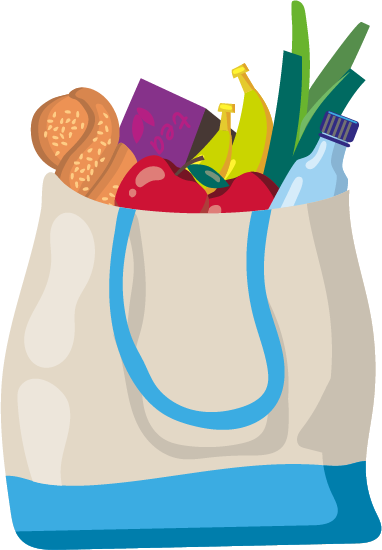Helping to manage your money through the cost of living crisis
Government Cost of Living Payments
Millions of the lowest-income households across the UK will get up to £1,350 from the Government in 2023/24 to help with the cost of living.
Depending on your circumstances you could get up to 3 different payments between Spring 2023 and Spring 2024:
- a Cost of Living Payment, if you get a qualifying low income benefit or tax credits (up to £900)
- a Disability Cost of Living Payment, if you get a qualifying disability benefit (£150)
- a Pensioner Cost of Living Payment, if you’re entitled to a Winter Fuel Payment for Winter 2023 to 2024
These payments are not taxable and will not affect the benefits or tax credits you get.
The remaining payment schedule is expected to be:
- £300 – Second Cost of Living Payment – during Autumn 2023 for most people
- £150-£300 – Pensioner Cost of Living Payment – you will get an extra £150 or £300 paid with your normal payment from November 2023
- £299 – Third Cost of Living Payment – during Spring 2024 for most people
If you’re eligible you will be paid automatically, and you don’t need to apply.
For more information visit gov.uk/guidance/cost-of-living-payment#cost-of-living-payments-2023-to-2024.
Here to help
Do you know what help is available to help you with the cost of living?
Advice Link Cymru, a government-funded Citizens Advice service, and Welsh Government are working together to help people with the rising cost of living.
If you are unsure about what support is available to you, Advicelink Cymru can help you check what you are entitled to and to claim what’s yours, such as Personal Independence Payment, Carers Allowance and Pension Credit. Their advice is free and confidential on 0808 250 5700. Lines are open from Monday to Friday between 9am to 5pm.
Croesawir galwadau yn Gymraeg / Calls are welcomed in Welsh.
https://www.citizensadvice.org.uk/wales/about-us/our-work/advice-partnerships/advicelink-cymru/
How to manage your money
1. What is your income?
How much money is coming into your household? Are you claiming all the benefits that are available to you?
“One of the common misunderstandings among pension age people who have savings is that they can’t claim Pension Credits,” says our Bridgend TSO Kate Abraham. “This benefit is based on income not savings. If you qualify for Pension Credit, even if you only get an extra £1, you can then claim other support such as Housing Benefit, reductions on council tax and other health benefits.’
“Younger people who are working assume they are not entitled to Universal Credit because they have a wage coming in. However, if they pay their rent and are on a low income, they could be entitled to some Universal Credit. If you are claiming Universal Credit, you can then also claim discretionary grant payments and other cost-of-living payments.
2. What are you spending?
-
To do this you will need to gather your bank statements for at least the past three months. The best way to start is to gather recent bills, bank statements, wage slips and receipts to get a clear picture of your income and outgoings each month and make a note of them. Remember to include any annual bills such as TV licence, car tax or car insurance.
3. What are your priority bills?
Paying your rent, council tax, gas, electric and water bills and food should be considered the most important. However, there are things you can do to make the outgoings more manageable.
If you don’t pay rent you could end up losing your home, so if you are struggling speak with your Housing Officer about managing payments before falling into debt.
Council Tax
To check whether you are entitled to a reduction visit gov.uk/apply-council-tax-reduction
TV Licence
If you watch television, whether streaming Netflix or other subscription channels you must have a TV licence. There are a number of ways you can pay for your TV licence, either weekly, fortnightly, monthly or annually. To find out which is best for you visit their website tvlicensing.co.uk/cs/pay-for-your-tv-licence
Water bill
Dwr Cymru’s HelpU tariff is designed to help low-income households by putting a cap on the amount you have to pay for your water. Find out more at dwrcymru.com/en/support-with-bills/helpu-tariff
Gas & Electric
In the current climate, switching to a cheaper supplier is more difficult. But if you are struggling, speak with your supplier.
Internet & Phone
If you are on a low income, some phone and broadband providers offer a social tariff, for as little as £10 a month, which provides a safety net package of free minutes for calls and a small amount of data. Visit ofcom.org.uk/phones-telecoms-and-internet/advice-for-consumers/costs-and-billing/social-tariffs to find out more.
4. Check your subscriptions
Are you still paying for free trials that ended months ago and you’re no longer using? Do you need to pay for things like phone insurance, insurance on your appliances, or streaming services like Amazon, Netflix, Disney? Are your favourite TV programmes available on other platforms for free e.g. All4, ITVHub or BBC iPlayer?
5. Do you have credit card debts?
If you are running, or have run up, spending on a credit card with high interest rates by paying off the minimum every month, you are possibly only ever paying the interest and not paying off your debt. It may be worth looking at switching to a card with 0% interest. This could cost a 1% initial fee. Depending on the amount of debt and the length of time you will have 0% interest, it may be worth it. Just be careful that when the 0% interest period ends you may have to pay interest – or switch again. For more advice visit: moneysavingexpert.com/credit-cards/
6. Can you save on your food shopping?
Is your family addicted to food brands and would they know if you swapped for cheaper or own-brand alternatives?
The network of food pantries is growing. People on low incomes can join their local pantry and buy bags of food each week at a much-reduced price.
To find your local pantry visit yourlocalpantry.co.uk/pantry-listings/
The Trussell Trust also runs a network of food banks, where you can receive 3 free food parcels every six months.
For more information visit trusselltrust.org/get-help/find-a-foodbank/ You can also contact your local Tenancy Support Officer, who will also know of food schemes and other support in your area.

As the cost of everyday items and energy prices continues to rise, many people are finding the money coming in is less than the money going out.
The importance of making – and maintaining – a budget (a list of everything you spend and earn in a month) has never been more important.
Most days our Tenancy Support Officers (TSOs) offer budget advice to residents who are struggling. Here they share their tips to help make a budget and manage your income and outgoings.
Payments to help with energy bills during winter
Hider
Your content goes here. Edit or remove this text inline or in the module Content settings. You can also style every aspect of this content in the module Design settings and even apply custom CSS to this text in the module Advanced settings.
Winter Fuel Payments
If you were born on or before 25 September 1957 you could get between £250 and £600 to help you pay your heating bills.
To be eligible you must either get the State Pension or another social security benefit (not Housing Benefit, Council Tax Reduction, Child Benefit or Universal Credit). You will get your Winter Fuel Payment automatically (you do not need to claim)
Cold Weather Payments
The 2022 Cold Weather scheme started on 1 November. Cold Weather Payments are different to Winter Fuel Payments and are paid if the average temperature in your area is recorded as, or forecast to be, zero degrees Celsius or below over 7 consecutive days.
You could get £25 for each 7-day period of very cold weather between 1 November and 31 March.
You’ll be able to check if your area is due a payment in November 2022. You can qualify for payments if you get certain benefits e.g., Pension Credit, Income Support, Income-based Jobseeker’s Allowance, Income-related Employment and Support Allowance, Universal Credit or Support for Mortgage Interest.
New Warm Home Discount Scheme
The Government has increased the payment from £140 to £150 but has changed who can and can’t claim the Warm Home Discount scheme. The changes were brought in in July 2022 with those who claim disability living allowance and personal independent payments no longer eligible to get the rebate. However, those claiming Housing Benefit can now claim.
Under the changes only those with high energy costs who claim a means-tested benefit will be eligible. Your eligibility to claim (and how much money you then receive) depends on your income and savings.
To find out more and check if your energy supplier is part of the scheme visit gov.uk/the-warm-home-discount-scheme
Your electricity supplier decides who can get the discount and the number of discounts is limited. If you do qualify, you’ll need to stay with your supplier until it’s paid.
If you’re eligible under the new rules you should have received a letter from October 2022 saying that you will either receive the rebate automatically and therefore don’t need to do anything, or that you may be eligible but need to call a dedicated helpline to provide further evidence of your eligibility.
If you think you’re eligible but didn’t receive the letter in October, you can also contact a helpline, which will be available on Gov.uk or via Citizens Advice.
To find out more visit:
moneysavingexpert.com/news/2022/03/warm-home-discount-reforms-/
Energy Debt
If you are having debt deductions taken from your pre-payment meter, you can phone your supplier to ask them to reduce the rate of deduction to the minimum if you tell them about any vulnerabilities, health conditions or financial concerns you have. You can usually find your supplier’s number on your bill or statement. Help that they can provide includes ‘friendly-hours’ credit, additional support credit or emergency credit.
You should tell your supplier straightaway if you can’t top up your meter for any reason.
For more information visit www.fuelbankfoundation.org

